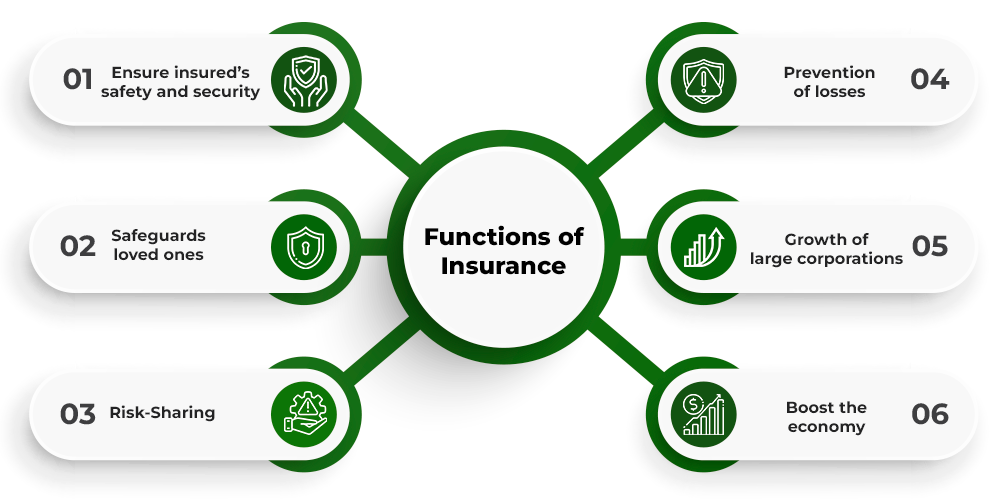The Main Principles Of Pacific Prime
Table of ContentsFascination About Pacific PrimeThe smart Trick of Pacific Prime That Nobody is DiscussingThe Greatest Guide To Pacific PrimeThe 6-Minute Rule for Pacific PrimeWhat Does Pacific Prime Mean?

This is due to the fact that the data were gathered for a duration of strong financial performance. Of the approximated 42 million people who were without insurance, just about concerning 420,000 (regarding 1 percent) were under 65 years old, the age at which most Americans end up being qualified for Medicare; 32 million were adults between ages 18 and 65, around 19 percent of all adults in this age; and 10 million were youngsters under 18 years of age, regarding 13.9 percent of all youngsters (Mills, 2000).
These estimates of the number of individuals uninsured are generated from the yearly March Supplement to the Existing Populace Survey (CPS), conducted by the Demographics Bureau. Unless otherwise noted, national price quotes of people without medical insurance and proportions of the populace with various kinds of insurance coverage are based upon the CPS, the most widely made use of resource of estimates of insurance policy protection and uninsurance prices.
What Does Pacific Prime Mean?

Still, the CPS is specifically helpful since it produces annual estimates reasonably quickly, reporting the previous year's insurance protection approximates each September, and since it is the basis for a constant set of estimates for more than 20 years, allowing for evaluation of fads in insurance coverage gradually. For these reasons, in addition to the substantial use the CPS in other researches of insurance policy coverage that are presented in this record, we rely upon CPS price quotes, with constraints noted.

The quote of the variety of uninsured individuals expands when a population's insurance policy standing is tracked for a number of years. Over a three-year duration beginning early in 1993, 72 million individuals, 29 percent of the united state populace, were without coverage for a minimum of one month. Within a solitary year (1994 ), 53 million individuals experienced at the very least a month without coverage (Bennefield, 1998a)
6 out of every ten uninsured grownups are themselves utilized. Although working does boost the chance that a person and one's member of the family will certainly have insurance coverage, it is not a guarantee. Also participants of family members with two full-time wage income earners have almost a one-in-ten chance of being uninsured (9.1 percent without insurance rate) (Hoffman and Pohl, 2000).
Some Known Details About Pacific Prime
New immigrants represent a significant proportion of people without health and wellness insurance coverage. One analysis has connected a considerable section of the current growth in the dimension of the united state uninsured populace to immigrants that showed up in the nation between 1994 and 1998 (Camarota and Edwards, 2000). Current immigrants (those that pertained to the United States within the previous four years) do have a high price of being uninsured (46 percent), however they and their children represent simply 6 percent of those without insurance nationally (Holahan et al., 2001).
The connection in between wellness insurance policy and accessibility to care is well established, as documented later on in this phase. The connection between health and wellness insurance coverage and health and wellness results is neither direct nor easy, a substantial scientific and health and wellness services research literature web links wellness insurance policy protection to better accessibility to care, far better high quality, and enhanced personal and population health status.
Degrees of analysis for examining the results of uninsurance. It concentrates particularly on those without any wellness insurance coverage for any length of time.
Pacific Prime for Beginners
The issues dealt with by the underinsured are in some areas similar to those encountered by the without insurance, although they are generally less severe. Health and wellness insurance, nevertheless, is neither required nor adequate to get access to medical services. The independent and direct result of health insurance policy coverage on accessibility to health and wellness services is well developed.
Others will obtain the healthcare they need even without wellness insurance coverage, by spending for it expense or seeking it from companies that provide treatment totally free or at very subsidized prices. For still others, medical insurance alone does not guarantee receipt of care due to other nonfinancial obstacles, such as an absence of healthcare companies in their neighborhood, limited accessibility to transportation, illiteracy, or etymological and cultural distinctions.
Things about Pacific Prime
Official study about uninsured populaces in the USA dates to more helpful hints the late 1920s and early 1930s when the Committee on the Cost of Healthcare created a collection of records concerning financing doctor workplace visits and hospitalizations. This problem ended up being salient as the numbers of clinically indigent climbed throughout the Great Depression.